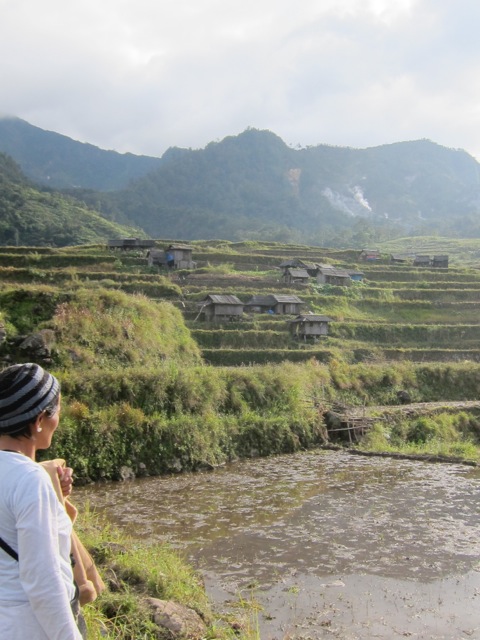
At Vilicus Farms, north of Havre, Montana, Doug Crabtree and Anna Jones-Crabtree rotate 24 different crops in 36 foot strips, with pollinator-friendly border plantings in between.
A new study published in the journal, Environmental Science & Policy highlights the need for increased funding for ecological agriculture research to learn more about this important practice and its crucial role in addressing the world food crisis and mitigating climate change.
The study by Dr. Albie Miles, UH West Oʻahu assistant professor of sustainable community food systems; Dr. Marcia DeLonge, acroecology staff scientist in the food & environment program at the Union of Concerned Scientists in Washington, D.C.; and Dr. Liz Carlisle, fellow at the Center for Diversified Farming Systems at the University of California, Berkeley found:
- Much United States Department of Agriculture (USDA) research and extension funding is unrelated to sustainable agriculture. The USDA’s stated commitment to advancing sustainable agriculture is not backed up research dollars. Just 1.5% ($44 million) of the total USDA Research, Education, and Economics $2.8 billion budget is dedicated to agroecological projects.
- Many projects are focused on enhancing yields of crops or animal products. The USDA dedicated 35% of analyzed research funds ($105 million) for the purpose of increasing agricultural efficiencies either by increasing crop production or decreasing pesticide use.
- Fewer funds support substituting less damaging inputs into farming practices. Just 23% of analyzed funds ($69 million) are dedicated to ecological pest management, adopting alternative fertilizers, planting cover crops, and other practices that boost the health of farms, ranches and surrounding environments.
- Ecological agriculture is crucial but lacked funding. Of the USDA’s $2.8 billion spent on Research, Education and Economics, only $12 million (4% of the total research budget) was spent on practices that encourage a transition to sustainable food systems. Today’s farms and ranches contribute to air and water pollution, climate change, public health problems, biodiversity loss, and other concerns.
- More public funds are needed for agroecology and related socioeconomic supports.
“While modern agriculture has proven remarkably productive, it has simultaneously generated ecological and social impacts of global concern,” said Dr. Albie Miles. “Given the profound influence of agriculture on environmental quality, human health and food security, a more ecologically benign form of agriculture will prove essential to any meaningful conservation strategy, including climate change adaptation and mitigation. The science of agroecology can help meet global food needs sustainably and efficiently, yet it has been largely neglected by the USDA and the international agriculture research institutions. Agriculture is one of the biggest problems, but it could be one of the most powerful solutions.”

Traditional terrace production of heirloom rice in the upland Philippines. These 2,000 year-old terraces not only facilitate the production of the region’s staple crop, but also support montane ecosystems, helping to mitigate damage from typhoons.
The study, “Investing in the transition to sustainable agriculture,” is now available online and will be published in hardcopy in the journal Environmental Science & Policy in Jan. 2016. A summary of the study, “Counting on Agroecology: Why We Should Invest More in the Transition to Sustainable Agriculture” may be found at the Union of Concerned Scientists website.
UH West Oʻahu is the only University of Hawaiʻi campus to offer the bachelor’s degree in sustainable community food systems, an experiential and applied education focused on the analysis of key ecological and social issues in the food system. The concentration incorporates problem-based and hands-on learning to develop food system professionals capable of solving real-world problems and transitioning Hawaiʻi’s food and agriculture sector toward greater ecological sustainability and social equity. Integrated into the sustainable community food systems curriculum and located on the UH West Oʻahu campus, the UHWO Student Organic Garden serves as one of many “living laboratories” where students directly apply the theoretical knowledge taught in the classroom. For more information, visit the UH West Oʻahu Sustainable Community Food Systems webpage.
Related articles:
Investing in Agroecology: Study Reveals Lack of Funding for Sustainable Ag Research
UH West Oʻahu trains future food and agriculture professionals
Sustainable Community Food Systems featured in national publication
Dr. Albie Miles publishes research on agroecology and food security in Africa
Dr. Albie Miles and colleagues publish new study on western grape leafhopper
Dr. Albie Miles’ edited volume Teaching Organic Farming & Gardening 3rd edition published
